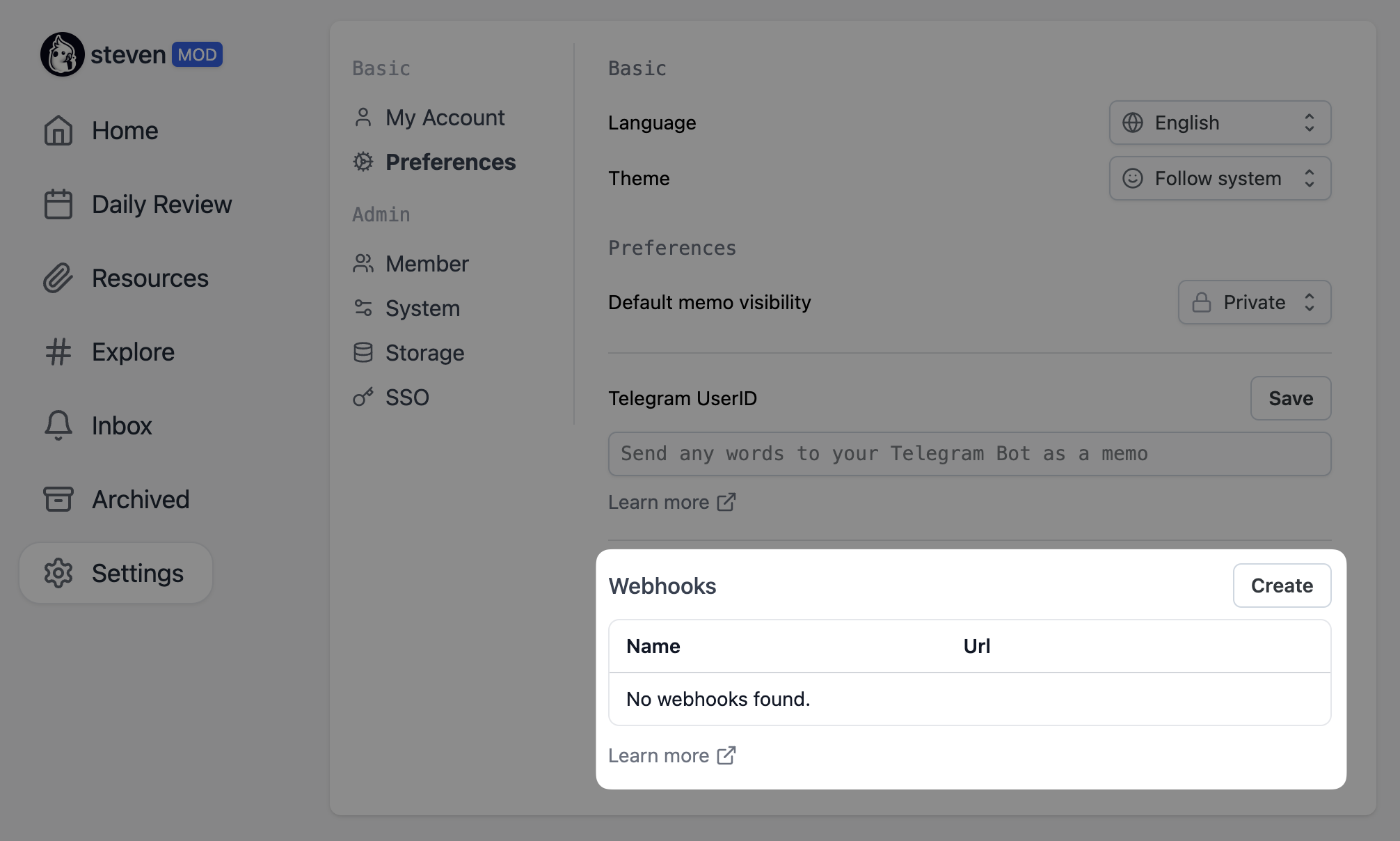Webhooks let you subscribe to events happening in a software system and automatically receive a delivery of data to your server whenever those events occur. Webhooks provide a way for notifications to be delivered to an external web server whenever certain events occur on Memos.
Using Webhooks
Webhooks are utilized to dispatch events related to memo creation, update and deletion.

When you create a webhook, you should specify a URL. When an event that your webhook is subscribed to occurs, Memos will send an HTTP POST request with JSON data about the event to the URL that you specified. If your server is set up to listen for webhook deliveries at that URL, it can take action when it receives one.
The data sent in the webhook includes information about the memo and its associated resources and relations. Its structure is as follows:
activityType: A string denoting the type of action taken on the memo. The possible values are:memos.memo.createdmemos.memo.updatedmemos.memo.deleted
creatorId: Identifier of the memo creator.createTime: Timestamp of when the webhook payload is created.memo: Details about the memo, including its ID, content. If you need more information about the memo, you can use the memo ID to fetch the memo details from the Memos API.url: The webhook URL.
Once your server is configured to receive payloads, it will listen for any delivery that's sent to the endpoint you configured.
